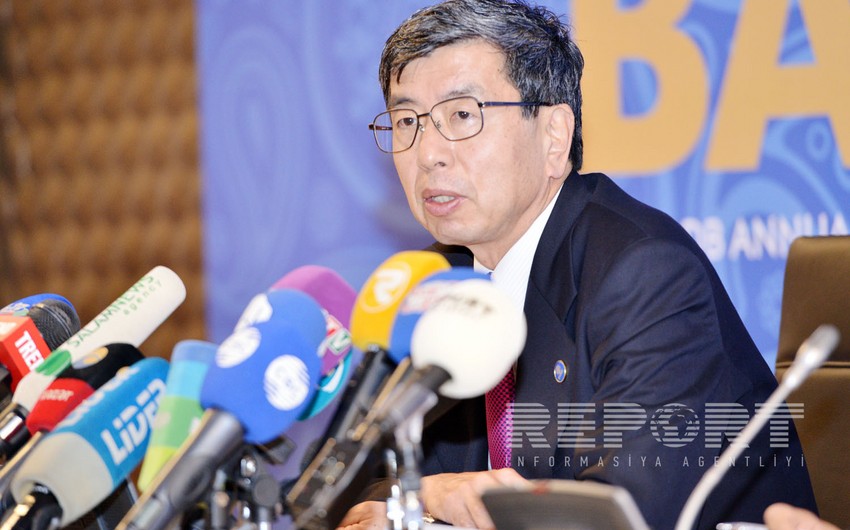Baku. 28 October. REPORT.AZ/ “The Central Asia Regional Economic Cooperation (CAREC) program started operations in 2001 and has made significant contributions to the region’s growth. The program has grown steadily to 11 member countries and has financed more than $30 billion of investments to enhance transport and energy linkages and boost cross-border trade. Over a third of this amount, or $10.5 billion, has come from the Asian Development Bank (ADB), which has supported CAREC since its inception”.
Report informs, President of ADB Takehiko Nakao said at the CAREC ministerial conference in Dushanbe, Uzbekistan.
According to him, despite their rapid development, countries in the region face significant challenges: “The spillover impacts of global economic and financial crisis and of lower oil and gas prices have been acute. Climate change is a major global and regional challenge. These issues do not respect borders and underscore the value of working together to navigate the shifting development landscape”.
The CAREC program needs a scaled-up mandate to become more effective and relevant in the years ahead.
Its CAREC 2030 strategy, unanimously adopted on 27 October by member countries in Dushanbe, Tajikistan, shows the region is ready to fully achieve its enormous potential by connecting its people, policies, and projects. I see four key ways in which it can create the conditions for future growth, stability, and prosperity.
Firstly, it will deepen support for traditional areas of cooperation, such as transport, energy, and trade facilitation. Regional cooperation cannot be achieved without the basic building blocks of good roads and railways, reliable power supplies, and the ability of businesses to seek new markets.
Infrastructure investments that integrate new technologies, coupled with appropriate regulatory reforms, will help accelerate the region’s integration with global value chains and support the adoption of clean and renewable energy.
Secondly, there is a pressing need for macroeconomic policy dialogue among member countries to promote economic and financial stability. The CAREC program has provided a practical and flexible platform for infrastructure investment and policy planning.
Through initiatives such as a planned forum for countries to share experiences on banking and market regulation, CAREC 2030 can also help improve the region’s investment climate, sustain economic growth, and manage the impact of cyclical economic downturns.
Thirdly, for Central Asia to truly prosper it must commit to cooperating in new areas. CAREC 2030’s support for regional initiatives in tourism, agriculture, water resources, health and education will help countries achieve their sustainable development goals. Deeper cooperation will also help countries reach their targets under the COP21 climate agreement.
Cross-border tourism, value-added agricultural exports, and educational exchanges have tremendous untapped potential in Central Asia. But these can only be unlocked through a regional agenda where countries work together and share expertise.
Finally, development in Central Asia will depend crucially on building the capacities of its own people. Enhancing people-to-people contacts will help deepen intra-regional understanding and increase personal mobility. Enhanced business-to-business contacts are vital to increase private sector development and create jobs.
ADB will commit $5 billion to support CAREC 2030 in the next 5 years. The CAREC, which was established in 1997 has 11 member countries. They are Azerbaijan, China, Afghanistan, Georgia, Kazakhstan, Kyrgyzstan, Mongolia, Pakistan, Tajikistan, Turkmenistan and Uzbekistan.


 https://static.report.az/photo/2beaf1a8-6bee-4990-bb38-7857ffe9b745.jpg
https://static.report.az/photo/2beaf1a8-6bee-4990-bb38-7857ffe9b745.jpg

